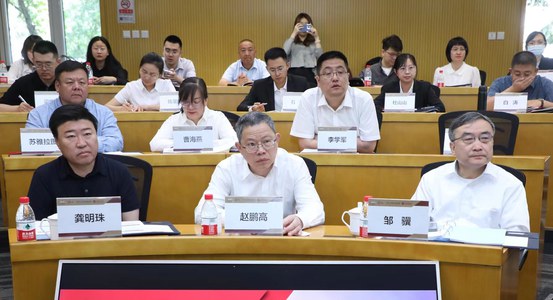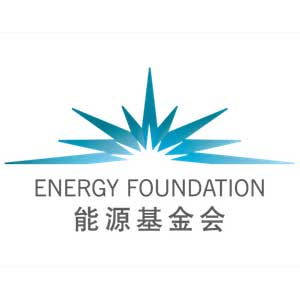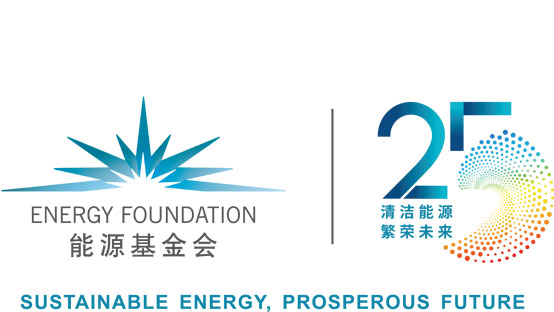Inner Mongolia Officials Receive Carbon Training at Tsinghua
On May 22, 2023, the Inner Mongolia Autonomous Region commenced a week-long training course at Tsinghua University for its economic officials about carbon mitigation, resource conservation, and the green and low carbon transition, with support from Energy Foundation China. He Jie, Deputy Director-General of Inner Mongolia’s Development and Reform Commission chaired the opening ceremony, with remarks from Gong Mingzhu, the provincial commission’s Director-General; Zou Ji, CEO and President of Energy Foundation China; and Sun Xin, Vice President of Tsinghua’s Carbon Neutrality Research Institute.

Gong Minzhu, Zhao Penggao, and Zou Ji attend the opening ceremony of the carbon training for Inner Mongolia officials on May 22, 2023. Photo by Cao Wenpeng
As an major energy producer in China, Inner Mongolia plays an vital role in ensuring energy security and accelerating supply side reform in the energy field. According to the northern province’s 2022 Economic and Social Development Statistics Bulletin, it generated 644 billion kilowatt hours electricity in 2022, more than any other provinces nationwide. Notably, it exported approximately 40% of the power generation, or 263.1 billion kilowatt hours, to other parts of the country. Inner Mongolia’s wind power installed capacity reached 45.64 million kilowatts in 2022, marking a milestone as its annual wind power generation surpassed 100 billion kilowatt hours for the first time, ranking the highest among the provinces in the country.

Zou Ji delivers a speech at the opening ceremony of the carbon training starting from May 22, 2023. Photographer by Cao Wenpeng
Over 50 officials from different regions of the provinces participated in this training program, which invited nearly 20 professors from Tsinghua’s Institute of Carbon Neutrality and the PBC School of Finance as lecturers. They covered a wide range of subjects, including macroeconomics, power system transformation, key carbon neutrality technologies, industrial structure changes, and the synergistic reduction of criteria pollutant and carbon emissions, with the aim of deepening the understanding of carbon peaking and neutrality topics among the province’s government officials, enhancing their knowledge, and improving their oversight capabilities.
Zou Ji and Gong Mingzhu had in-depth discussions on focus areas and potential cooperation opportunities for carbon and economic initiatives in Inner Mongolia. Going forward, Energy Foundation China plans to continue to work with research institutions in the province, focusing on innovations in areas such as structural changes, emerging industries, low carbon technologies, and pilot projects, in hopes of supporting the province’s high-quality economic development and carbon goals attainment.



